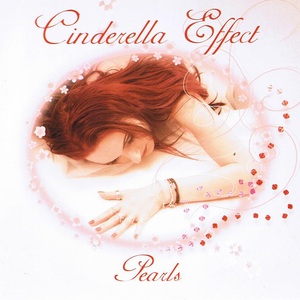The first album ("Pearls") consists of 15 covered versions of well-known Independent-Hits like After Dark, Black Hole Sun or Black No.1.
This project was supported by many studio-artists, especially by Coralie Thomas & Katja Gutowski.
It contains minimalistic electronical background music, paired with classical to modern instruments leading the focus to the vocals.
The sound differs slightly song for song, mostly you could hardly recognize the original on first playtime. In any case, a new experience for fans of the original songs!
For additional information visit: Cinderella Effect @ MySpace
Zombie
Cinderella Effect Lyrics
Jump to: Overall Meaning ↴ Line by Line Meaning ↴
(The Cranberries. Lyrics by Dolores O'Riordan)
Another head hangs lowly,
Child is slowly taken.
And the violence caused such silence,
Who are we mistaken?
In your head, in your head they are fighting,
With their tanks and their bombs,
And their bombs and their guns.
In your head, in your head, they are crying...
In your head, in your head,
Zombie, zombie, zombie,
Hey, hey, hey. What's in your head,
In your head,
Zombie, zombie, zombie?
Hey, hey, hey, hey, oh, dou, dou, dou, dou, dou...
Another mother's breakin',
Heart is taking over.
When the vi'lence causes silence,
We must be mistaken.
It's the same old theme since nineteen-sixteen.
In your head, in your head they're still fighting,
With their tanks and their bombs,
And their bombs and their guns.
In your head, in your head, they are dying...
In your head, in your head,
Zombie, zombie, zombie,
Hey, hey, hey. What's in your head,
In your head,
Zombie, zombie, zombie?
Hey, hey, hey, hey, oh, oh, oh,
Oh, oh, oh, oh, hey, oh, ya, ya-a...
The song "Zombie" by The Cranberries is a powerful critique against the violence and pain caused by the ongoing conflict in Northern Ireland. The lyrics describe the senseless violence, the loss of innocent lives, and the devastation caused by war. The first verse describes a child being taken slowly, and the violence causing such silence that people mistake each other for enemies. The chorus repeats the word "zombie" several times, suggesting how the ongoing conflict has turned people into mindless, lifeless beings. The second verse repeats the same theme, highlighting a mother's heartbreak in losing her child, and how violence causes silence when we should be speaking up against it.
The song is a protest against the violence in Northern Ireland that took many innocent lives during "The Troubles" in the late 20th century. The lyrics represent the grief and anger of those who were affected by the conflict. The repeated "zombie" chorus represents the dehumanizing effect of the conflict, where people lose sight of their humanity and become consumed by hatred and violence. The song's somber tone and reflective melody highlight the song's serious message, making it a timeless classic.
Line by Line Meaning
Another head hangs lowly,
Another life is lost in violence and despair, represented by the hanging head.
Child is slowly taken.
The loss of an innocent child due to the violence and conflict.
And the violence caused such silence,
The violence has suffocated any hope for peace or reconciliation, ceding silence.
Who are we mistaken?
The question is raised about who is truly at fault for the cycle of violence and destruction.
But you see, it's not me, it's not my family.
The artist is disassociating themselves from the conflict, recognizing their personal lack of involvement.
In your head, in your head they are fighting,
The battle is internalized within the mind, which remains haunted by the horrors of war and violence.
With their tanks and their bombs,
Representative of the weaponry and military force used to wage war.
And their bombs and their guns.
Expanding upon the weapons of warfare, highlighting their destructive capabilities and deadly results.
In your head, in your head, they are crying...
The victims of violence continue to mourn and suffer, even after death or amidst ongoing conflict.
Zombie, zombie, zombie, hey, hey, hey.
Referring to those who have become a symbol or embodiment of mindless violence and destruction.
What's in your head, in your head,
Asks the listener to confront their own thoughts and feelings regarding violence and conflict.
Zombie, zombie, zombie, hey, hey, hey, hey, oh, dou, dou, dou, dou, dou...
A chanting of the word 'zombie', representing how violence and conflict can become all-consuming and all-encompassing, dominating one's thoughts and emotions.
Another mother's breakin',
Highlighting the emotional toll of violence and conflict on families, particularly mothers.
Heart is taking over.
Emphasizing the emotional and psychological damage that can be caused by conflict, leaving individuals and communities 'broken'.
When the vi'lence causes silence,
Expanding upon the idea that violence can destroy hope and peace, leading to a crushing silence.
We must be mistaken.
The song challenges the notion that violence is justified, declaring that those who engage in it are 'mistaken'.
It's the same old theme since nineteen-sixteen.
The song refers to the long history of conflict in Northern Ireland, suggesting that the cycle of violence is repeating itself over and over again.
Oh, oh, oh, oh, hey, oh, ya, ya-a...
Concluding the song with a repetition of vocal sounds, intended to convey the haunting and persistent presence of conflict and violence in the mind.
Contributed by Maya T. Suggest a correction in the comments below.
